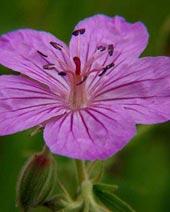Life is difficult.
This is a great truth, one of the greatest truths. It is a great truth because once we truly see this truth, we transcend it. Once we truly know that life is difficult, once we truly understand and accept it, then life is no longer difficult. Because once it is accepted, the fact that life is difficult no longer matters.
Most do not fully see this truth that life is difficult. Instead they moan more or less incessantly, noisily or subtly, about the enormity of their problems, their burdens, and their difficulties as if life were generally easy, as if life should be easy.
- from the very first paragraph of
The Road Less Traveled by M. Scott Peck
In the midst of pleasure, we are anxious about when it will end. In the midst of possession, we worry about loss. Even the most beautiful birth and most gracious death come with pain, for entering and leaving the body is inherently a painful process. We know that throughout our day, experience changes from pleasant to neutral to unpleasant, and back again, ceaselessly. This unending change is itself a source of pain. And our habitual reactions to it can create in us a continuous sense of struggle.
One strategy for gaining liberation is to focus our attention directly upon this inherent, continuous experience of dissatisfaction and pain. We must sense it clearly, and find in its midst a freedom that releases us from any identification or grasping. By the careful observation of the source of each action, a constant movement to alleviate suffering is revealed. Yet those who face this truth do not find it a formula for despair, but a gateway to compassion. For within the heart is found a freedom and love even greater than the suffering. By facing the pain of the world they awaken a fearless and merciful heart, the universal birthright of humanity.
- from
The Truth about Suffering by Jack Kornfield
Confronting, accepting, being with negative thinking and feeling, knowing that they are not the whole of reality and not you, is the most fruitful and beneficial of all spiritual practices—better even than experiencing bliss or Oneness. When you sit, noticing the breath and the body on the chair or cushion, noticing the thoughts and feelings in the mind and heart and perhaps also the sounds in the room and the stillness, something else also begins to come into view. You notice the most fundamental of all facts: you are alive. You are a living, breathing, embodied, human being. You can actually feel this—feel the feeling of being alive. You can rest in this basic feeling, the nature of life, of consciousness, the underlying basis of everything you will ever experience—even the negativity. Sitting there with this basic feeling of being alive, you will feel gratitude.
- from
Hard Times, Simple Times by Norman Fischer
If gratitude is a state of being that is essential to a life well lived, why then, in modern times, do we not cultivate and express it on a daily basis? After all, giving thanks and expressing appreciation for the blessings and gifts of life is a natural human response. Perhaps the key reason we do not make gratitude a part of our daily lives is that the accelerated pace and multiple distractions of modern life have simply made it all too easy to forget gratitude’s importance…
...Every language in the world has a way of saying “thank you.” This is because gratitude is an inherent quality that resides within each human being, and is triggered and expressed spontaneously in a variety of different contexts. Gratitude crosses all boundaries—creed, age, vocation, gender, and nation—and is emphasized by all the great religious traditions.
- from
Living in Gratitude by Angeles Arrien



